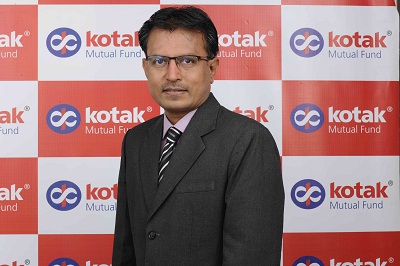 IFA community today is dealing with the challenge of rising cost of physical penetration and increasing competition from other BFSI segments. At the same time, we are seeing that the mutual fund business model has been making a gradual shift from push-driven to pull-led model.
IFA community today is dealing with the challenge of rising cost of physical penetration and increasing competition from other BFSI segments. At the same time, we are seeing that the mutual fund business model has been making a gradual shift from push-driven to pull-led model.
In such a milieu, it is not difficult to believe that of the 67000 odd AMFI registered IFAs; only around 10,000 IFAs are actively involved in the business. Many IFAs have shown reluctance in passing on the business legacy to their next-generation and would rather prefer to unwind their business. Many amongst the distribution community also feel that there is less appreciation of their concerns amongst the policy makers. Moreover, the individual limitation in reaching out to the larger investor segment spread across the wide geographical space also acts as a restricting factor for scaling up the IFA business.
In this backdrop, I have been a strong believer in the idea that the small and large IFAs must come together and corporatize themselves into a single, united business entity. Such a setup may inspire other IFAs to also self-organise themselves similarly as corporates; or consolidate with the original entity.
Such a unified ‘IFA Inc.’ will be able to create a standardised and a professional setup, systemise their service, and stimulate the development of expertise in core areas of distribution business. IFAs serving in this mutually shared and owned corporate body would specialise into various fields of business depending on their aptitude and competence. Some would become salespersons, others as operations, while some would evolve in managerial and leadership role. Such an organised entity would be also able to best represent themselves with the regulators; and also help grow the industry.
The ‘IFA Inc.’ would be able to increase their range of services and products. They would be able to generate the resource and the size necessary for setting up the common infrastructure and the technology. More vitally, such a professional setup would help IFAs in developing a sustainable business model without the worry of a succession plan. Also, the ‘IFA Inc’ would be able to create a standardised and identifiable brand under whose aegis they would be able to attract investors. The benefits are endless.
The examples of such mutualisation of common interest into a corporate behemoth are many. In fact, the story of Amul is a shining example of how simple farmers with little access to knowledge and market, over a period of 2 to 4 decades, created a milk revolution. We all know that it took the genius of Dr. Verghese Kurien and the enterprise of the marginal Guajarati farmers in the fifties and sixties to come together and form the milk co-operative. These co-operatives together collected, processed branded and marketed their milk. The pivotal success of this co-operative experiment led other farmers to also follow the pattern and eventually corporatize into the milk marketing giant – Amul. In process, these farmers not only enriched their lives but also made India a milk surplus nation.
This experiment of amalgamating small distributor businesses into a larger enterprise has been done in Australia as well. The Shadforth Financial group (SGF) was the merger of 14 specialist boutique wealth management and advisory firms in 2008. They were united by a vision and passion for creating client focussed advisory business. Their merger was to extend their individual capabilities by joining forces. This entity went on to become a prominent financial advisory firm in Australia. SGF was finally acquired by LOOF for US$ 678 million in 2014. This deal ended up creating millionaires among the hordes of people who ran SFG.
To conclude, India is still an untapped market for corporatized MF distributorship model. IFAs would need the willingness to work together and rise above their fear of unknown and take that initiative into the next financial revolution.
Nilesh Shah is Managing Director, Kotak MF.
The views expressed in this article are solely of the author and do not necessarily reflect the views of Cafemutual.





